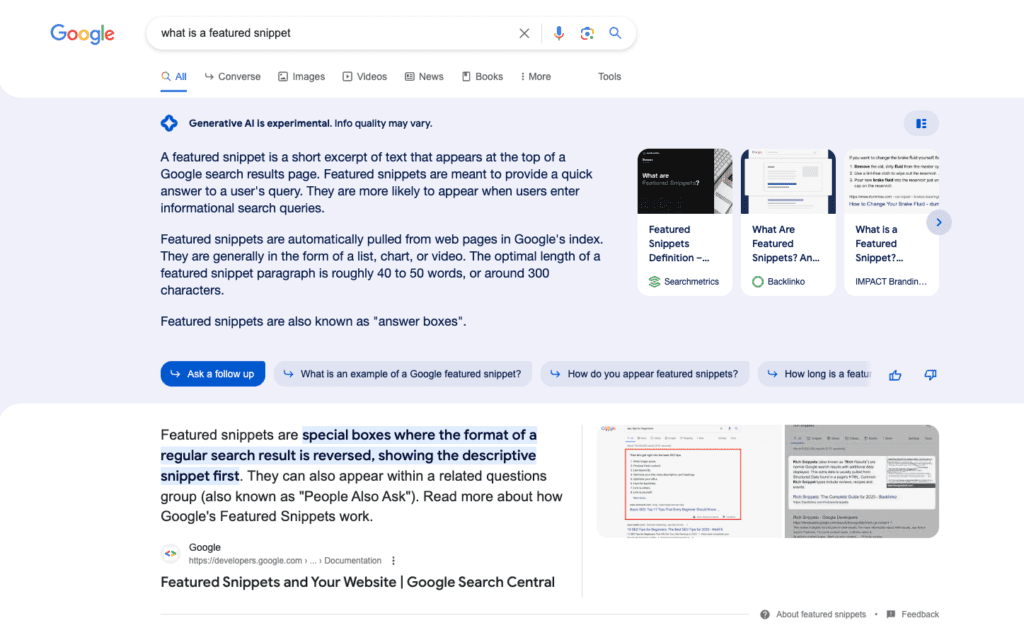In the aftermath of the launch of the new Google Search Generative Experience (SGE), there has been a widespread belief among SEO experts that only high authority websites with content created by experienced authors will perform well in the SGE. However, this notion is not entirely accurate. It is important not to lose motivation. Let’s delve deeper into this topic.
Shifting Focus from High Authority to Relevant Information
Previously, when conducting keyword searches on Google, high authority websites often ranked well, despite relying on keyword stuffing and lacking substantial information. For instance, websites like Zeenews and Aajtak secured top positions based on keyword usage rather than offering meaningful content. Conversely, websites with relevant information but lower authority and weaker backlinks struggled to attain favorable rankings.
The Impact of Google SGE on Ranking Factors
The introduction of Google SGE has brought about significant changes in search engine rankings. The SGE prioritizes websites that provide relevant information to users’ queries, irrespective of their age or authority. The emphasis is now on content quality and relevance rather than mere keyword stuffing. As a result, it is crucial to prioritize the creation of high-quality content that addresses user queries, rather than solely relying on keywords.
Balancing AI-generated Content with User-First Approach
While embracing the possibilities offered by AI in content generation, it is essential to maintain a user-first approach. Utilizing AI tools can help achieve a favorable score, regardless of whether the content is generated by AI or human authors. However, it is important to remember that the focus should always be on catering to the needs of the human audience.

Maintaining Momentum and Long-term Strategy
Consistency and long-term planning have always been integral to successful SEO endeavors. Although short-term optimization tactics may yield temporary improvements, it is crucial to develop a phased and ongoing optimization plan and remain steadfast in its execution. Adapting to changes in search engine result pages (SERPs) and evolving SEO practices is vital, without losing sight of the ultimate goals. Momentum plays a significant role in achieving desired outcomes.
Synergy between SEO and Overall Marketing Strategy
Aligning SEO efforts with the broader marketing strategy can provide valuable insights and enhance overall search engine performance. Ensuring harmonious integration across multiple marketing channels can lead to improved SEO outcomes and contribute to the achievement of organizational goals.
Conclusion
In conclusion, the advent of Google SGE has brought about a shift in SEO ranking factors, prioritizing relevant information and content quality over high authority alone. Balancing AI-generated content with a user-first approach is crucial, and a long-term strategy with consistent optimization efforts is necessary for sustained success. By integrating SEO with overall marketing strategies, organizations can unlock valuable synergies and drive improved results. Your opinions and thoughts on this topic are welcome and encouraged. Please feel free to share your insights in the comments.